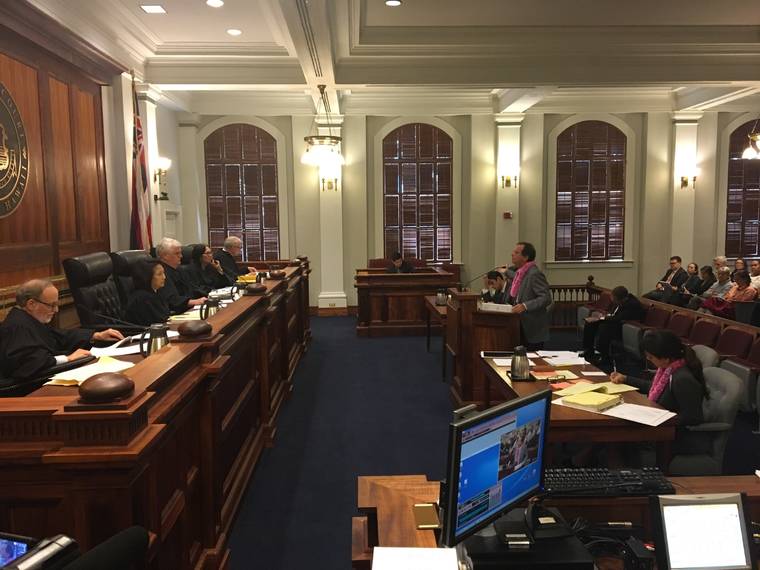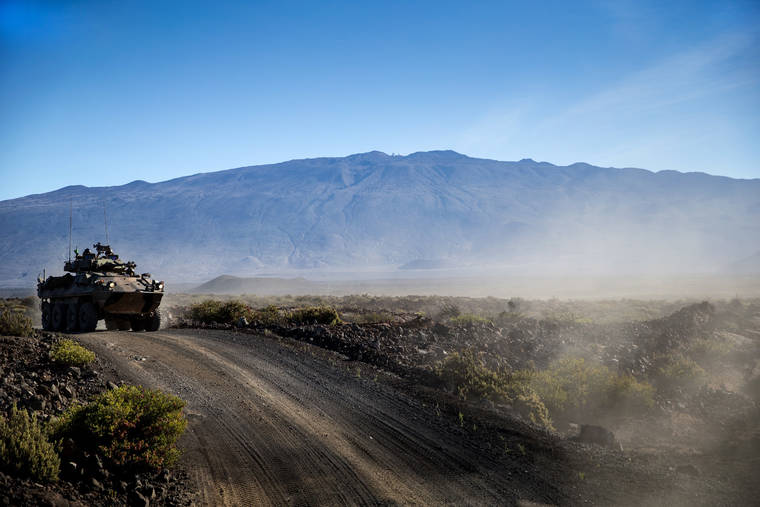Hawaii Supreme Court to determine whether state did its job to oversee Pohakuloa Training Area


DENNIS ODA / DODA@STARADVERTISER.COM
The Hawaii Supreme Court heard oral arguments today in a case in which the state is being accused of not doing enough to ensure the U.S. Army isn’t trashing the Pohakuloa Training Area on Hawaii island.

AUSTRALIAN DEFENSE FORCE PHOTO BY CPL. DAVID SAID / 2016
An armored vehicle moves through the Pohakuloa Training Area during Rim of the Pacific 2016.



The Hawaii Supreme Court heard oral arguments today in a case in which the state is being accused of not doing enough to ensure the U.S. Army isn’t trashing the Pohakuloa Training Area on Hawaii island under the terms of its 65-year lease with the state.
The state appealed a ruling last year by Oahu Circuit judge Gary Chang, who said the state Department of Land and Natural Resources failed to properly care for the trust land.
Chang had ordered the state to provide a written stewardship plan, regular monitoring and inspections, inspection reports with recommendations and procedures for addressing violations and debris removal plans, among other things.
But Ewan C. Raynor, Hawaii’s deputy solicitor general, told the court today that Chang overstepped his authority. He said state court’s oversight of the case is limited by the fact the U.S. government isn’t one of the parties in the case.
The fact is, he said, the Army gets to decide whether there is a breach of duty under the lease. He suggested the case belonged in federal court.
>> View more photos from the Supreme Court today. Opens in a new tab
Don't miss out on what's happening!
Stay in touch with breaking news, as it happens, conveniently in your email inbox. It's FREE!
But several justices questioned his arguments, and so did David Kimo Frankel, attorney for the plaintiffs, Hawaiian cultural practitioners Clarence Ching and Mary Maxine Kahaulelio.
Frankel argued that the state is the one ultimately responsible for making sure that trust lands are looked after properly.
“The facts are compelling (and) the law is on our side,” the former Native Hawaiian Legal Corp. attorney said afterward.
The Pohakuloa Training Area is a 100,000-acre property used by the Army for combat and live-fire training. Some 20,000 acres of the military outpost are owned by the state and have been leased to the Army since 1964 for $1.
About three dozen Hawaiians and Thirty Meter Telescope opponents met in a ceremony before the hearing. Afterward, they called on the TMT partners and board members to divest from the $1.4 billion project scheduled for construction near the summit of Mauna Kea.



